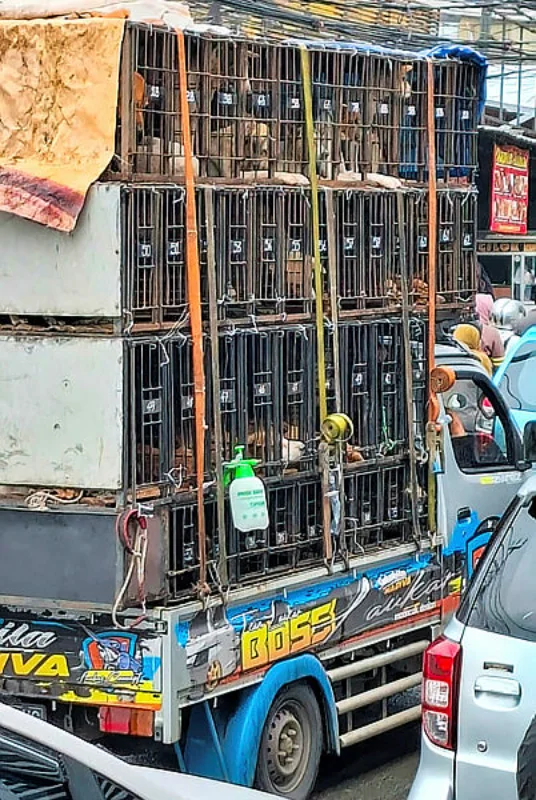Jakarta bans dog and cat meat trade to maintain rabies-free status, sparking debate between animal welfare advocates and traditional consumers
JAKARTA: The city’s authorities have banned the trade of dog and cat meat for consumption, creating division between animal rights advocates and traditional consumers.
Governor Anies Baswedan announced the prohibition on rabies-transmitting animals this week, including cats, dogs, bats, monkeys and civets.
A six-month grace period will precede enforcement, allowing restaurants and slaughterhouses to adapt to the new regulations.
Jakarta has maintained rabies-free status since 2004, and officials say the ban helps preserve this public health achievement.
“God created it to be eaten,” argued consumer Alfindo Hutagaol, who opposes the prohibition.
The 36-year-old told AFP that authorities should consider the benefits alongside the negatives of dog meat consumption.
Some Indonesian communities consider canine meat a traditional remedy for dengue fever, though consumption remains limited nationwide.
Sunggul Sagala, another consumer, described dog meat eating as cultural tradition that “can’t be eliminated suddenly.”
Animal welfare groups celebrated the decision as a victory for their long-running campaign against the trade.
Dog Meat Free Indonesia coalition representative Merry Ferdinandez called it “a real commitment from the Jakarta government as a global city that also advances animal welfare.”
The capital’s food resiliency agency head Hasudungan Sidabalok acknowledged the challenge in changing cultural practices.
He identified 19 restaurants still serving dog meat and at least two operating slaughterhouses in Jakarta.
Increased enforcement has already driven much of the trade underground, with restaurants no longer advertising such dishes openly.
Sunggul compared the current situation to “looking for drugs,” noting that trusted customers now pay premium prices exceeding beef costs.
The ban does not extend to other Indonesian regions, though advocates hope it will encourage similar prohibitions elsewhere.
Violators face sanctions ranging from written warnings to business license revocation after the grace period ends.
Authorities are developing detailed enforcement rules and appropriate penalties for non-compliance.
Similar bans in other countries have raised concerns about the fate of animals no longer destined for consumption.
Alfindo warned that enthusiasts might target Jakarta’s stray dog population if the prohibition takes effect.
“The government should rethink the policy,” he concluded after finishing his meal. – AFP







